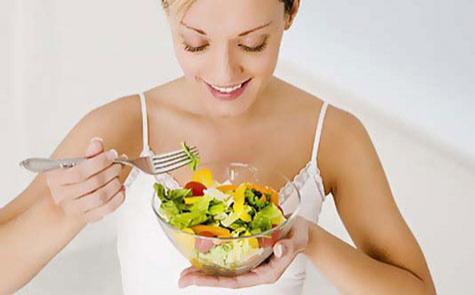The registered dietitian and best-selling author advocates putting only the most natural, nutrient-dense and hunger-satisfying foods in your body, whether your goal is weight loss, running marathons or simply cleaning up your diet.
Sass, a former University of South Florida academic who found national fame as a nutritionist, now lives in New York.
In her latest book, Sass Yourself Slim: Conquer Cravings, Drop Pounds and Lose Inches, she tells readers how to build their diets around fresh, colourful produce (especially spinach and bananas), lean protein (such as eggs, beans and ricotta cheese), small amounts of healthy fat (including those found in avocado and nut butters) and fibre-rich whole grains (oats, quinoa, brown rice).
Sass has appeared on programs including Today, The Early Show and The Martha Stewart Show and has had two books on The New York Times bestseller list.
In her private practice, she counsels individuals, couples, families and "girlfriend groups" on a wide range of nutrition issues. No matter the audience, her core message is clear.
"It's all about the quality, quantity and timing of foods," she says. "When you eat is as important as what you eat."
Sass laments 75 per cent of Americans don't eat fruits and vegetables every day, and even more don't get enough whole grains.
"Even if you're eating fewer calories, but they are all refined and there's no fruits and vegetables in your diet, you're not optimising your health," she says.
Sass spoke to the Tampa Bay Times recently about her food philosophy.
Q: Is your advice for weight loss similar to your advice for athletes?
A: Yes, the meal timing and the balance of foods is very similar, but the quantity of food is different. For weight loss, you want to provide enough fuel to be active yet still lose weight. Both groups need some readily available carbohydrates before exercise. The right type and amount of carbs, plus what you eat after working out to recover, are key.
Q: What are the right and wrong carbs?
A: Highly processed and refined carbs and sugars in general are not optimal. And right before exercising, you don't want too much fibre, which can upset your (gastro-intestinal) system. I like bananas and high-quality whole grains such as brown rice and oats. My philosophy: whole, all-natural foods that are nutrient-rich are best. You also need vitamins and antioxidants, so if you just have carbs, you don't get the complete package; you won't get all that your body needs for optimal performance.
Q: Tell us more about timing meals correctly.
A: You have to make sure the gas tank is full before you hit the road. Eat breakfast within an hour of waking up to fuel the morning hours. Then refuel again so you eat about every three to five hours. If you've been exercising or (are) very active, eat within an hour of stopping. Be sure to include protein so you can start to recover and heal.
Q: Protein is needed after working out?
A: Protein ... provides the raw materials that heal and repair muscle tissue. You have a window of opportunity, within an hour of training, to deliver that raw material. That's where a protein shake might come in handy, so it can get into the muscle fast, within an hour of working out. But watch quantity.
Q: Is there a nutrition myth that you'd like to correct?
A: The biggest one for everybody is that it's just about calories in and calories out. We have new research that says the quality of a meal is important because of how food is used by the body. You want whole, all-natural foods and a wide variety of them so more nutrients show up for work. Remember, eat to fuel the next activity and to provide the raw materials for recovery. Variety, quality and timing are the most important strategies.
Q: What's missing from most meals today?
A: (Lots of people) fall short on fruits and vegetables. Fitting those in, that one change alone, can make a big difference in performance and recovery. It's not possible to take a pill to make up for that loss.









__small.jpg)









__small.png)










